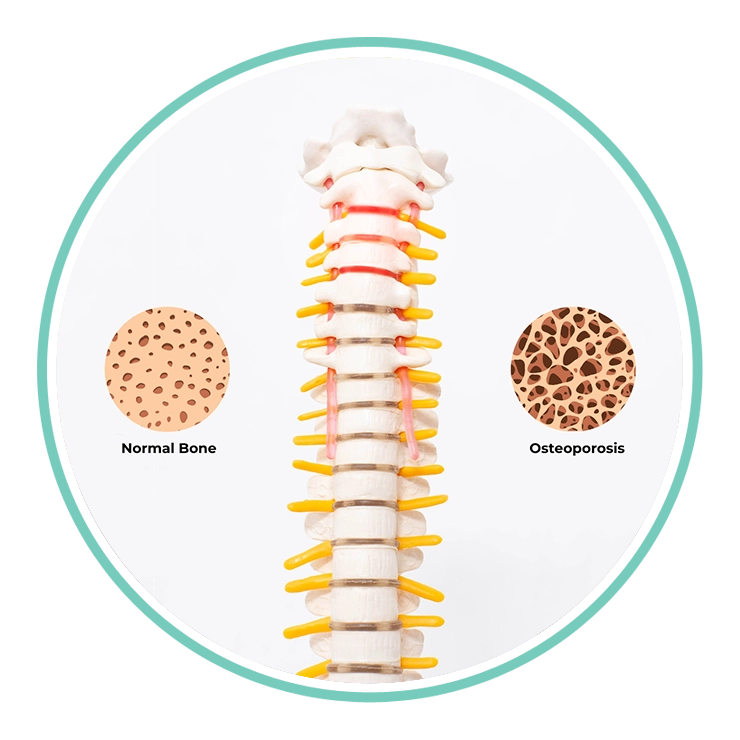Introduction
While it primarily affects the bones in the body, osteoporosis can also have implications for oral health, including the health of your teeth. In this blog, we will explore does osteoporosis affect your teeth and discuss how this condition can affect your teeth.
Understanding Osteoporosis
Before delving into the relationship between osteoporosis and teeth, let’s gain a basic understanding of osteoporosis. Osteoporosis is a medical condition that causes bones to become weak and brittle due to a decrease in bone density and quality. It commonly affects the spine, hip, and wrist bones. However, the condition can also affect other parts of the skeleton, including the jawbone and, consequently, your teeth.
The Connection Between Osteoporosis and Teeth
Osteoporosis can have several implications for oral health. The link between osteoporosis and teeth primarily revolves around the bone loss that occurs both in the jawbone and throughout the rest of the body. Here’s how osteoporosis can affect your dental health:
1. Weakened Jawbone: Osteoporosis can impact the jawbone, causing it to lose density and strength. A weakened jawbone can lead to various dental problems, including tooth loss and reduced stability for dentures or dental implants.
2. Increased Risk of Tooth Loss: Osteoporosis can increase the risk of tooth loss. As the jawbone weakens, it may no longer provide sufficient support for your teeth, leading to an elevated risk of tooth mobility and, in severe cases, tooth extraction.
3. Altered Bite and Tooth Alignment: Changes in the density and structure of the jawbone can affect your bite and the alignment of your teeth. Osteoporosis can cause a decrease in bone volume and density, potentially leading to misalignment of teeth and issues with your bite.
4. Delayed Healing: Osteoporosis can slow down the healing process in the oral cavity. This may make it more challenging to recover from dental surgeries, such as tooth extractions or dental implant placements.
Preventing and Managing Osteoporosis-Related Dental Issues
If you are living with osteoporosis or are at risk for it, there are steps you can take to protect your dental health:
1. Regular Dental Check-ups: Consistent dental check-ups are vital for the early detection and management of dental issues related to osteoporosis. Your dentist can monitor your oral health and provide guidance on preventive measures.
2. Proper Nutrition: A well-balanced diet rich in calcium and vitamin D is essential for maintaining strong bones, including those in your jaw. Supplements may be recommended by your healthcare provider if necessary.
3. Avoid Tobacco and Excessive Alcohol: Smoking and excessive alcohol consumption can contribute to bone loss, so quitting these habits can help maintain bone health.
4. Medications: Depending on the severity of your osteoporosis, your healthcare provider may prescribe medications to slow down bone loss and improve bone density.
5. Maintain Good Oral Hygiene: Proper oral hygiene practices, such as regular brushing, flossing, and using an antiseptic mouthwash, can help prevent dental problems associated with osteoporosis.
Conclusion
Osteoporosis can have a significant impact on dental health, with the weakening of the jawbone leading to various oral issues, including tooth loss and misalignment. It’s crucial to be aware of the potential risks and take proactive steps to prevent and manage these problems. Regular dental check-ups, a nutritious diet, and lifestyle changes can contribute to maintaining good oral health, even if you’re living with osteoporosis. Always consult with your healthcare provider and dentist for personalized advice and treatment options to address your specific needs.





